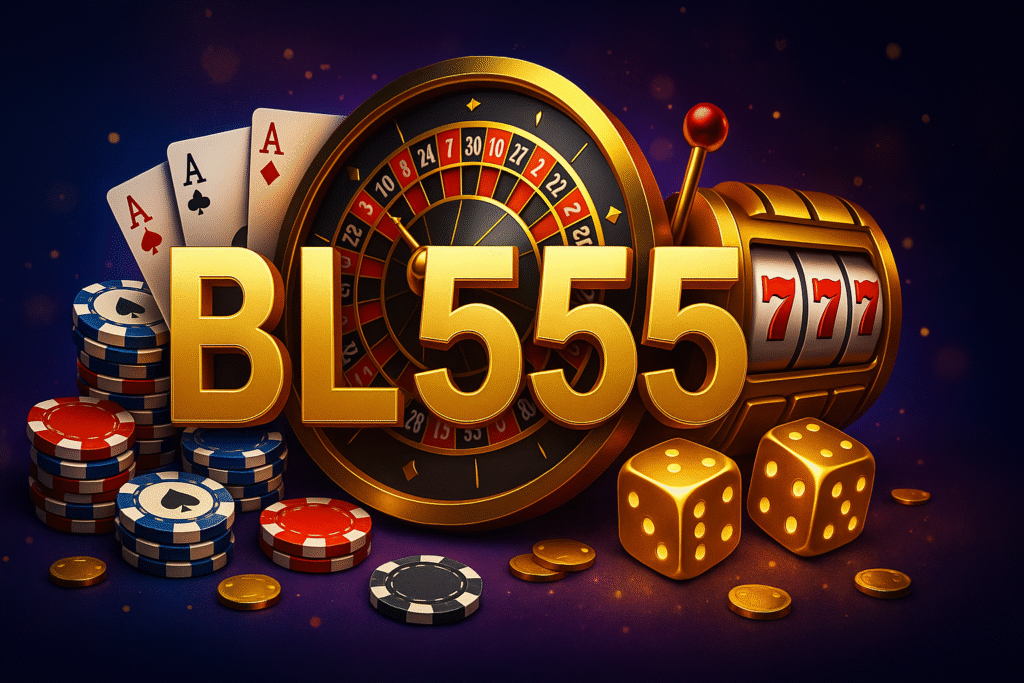
The thrill of casino gaming goes beyond mere chance. It taps into deep psychological patterns that drive behavior and decision-making. Modern platforms like BL555 understand this and have designed environments that captivate entertain and motivate players to return time after time.
At the core of every casino game is a balance between risk and reward. This principle activates the brain’s reward system especially when a player wins. The moment of victory even a small one releases dopamine which reinforces the pleasure of the experience. This creates a loop where players seek to replicate that feeling pushing them to continue playing.
Slot machines are a perfect example of how visual and audio cues influence behavior. Bright lights engaging graphics and celebratory sounds all work together to signal success and stimulate excitement. Even when the win is small or barely covers the bet the presentation makes it feel more significant. This keeps players immersed in the game and increases the time spent on the platform.
Another psychological principle at play is the illusion of control. Players often believe that their decisions or timing can influence the outcome even when dealing with random events. In games like blackjack or poker where strategy plays a role this belief is partially true. However in slots or roulette where outcomes are based purely on chance the sense of control is largely psychological. Platforms leverage this by giving players options that feel impactful like choosing the number of paylines or selecting a bet amount.
Near-miss outcomes also play a key role in keeping players engaged. When the symbols on a slot machine almost align or a roulette ball lands just beside the chosen number players perceive it as a close call. This triggers a sense of being on the verge of success and encourages continued play. The feeling of being almost right can be more motivating than a random loss.
Bonuses and rewards systems also tap into behavioral psychology. When players receive unexpected rewards or unlock features after repeated play it creates a sense of accomplishment. Loyalty programs are structured to provide incremental goals that players can work toward which keeps them motivated and invested in the platform. Whether it is leveling up earning points or unlocking special games these features add layers of satisfaction to the experience.
Time distortion is another phenomenon that often occurs in online gaming environments. Without external distractions or natural light players can lose track of how long they have been playing. The seamless flow of one game into the next contributes to this effect. Platforms are aware of this and design interfaces that encourage extended sessions. While this enhances immersion it also raises concerns about responsible gaming which reputable platforms address through session reminders and self-control tools.
Social interaction adds yet another dimension to the psychology of casino gaming. Multiplayer poker rooms live dealer tables and chat features foster a sense of community. Players feel they are part of a group which enhances enjoyment and reduces feelings of isolation. The competitive element especially in tournaments adds motivation and engagement.
Gamblers also experience a mental state known as the hot hand fallacy. This is the belief that a streak of wins will continue or that a loss streak must end soon. While probability does not support these ideas the emotional drive behind them is powerful. Many platforms carefully structure wins and losses to keep players emotionally invested without exposing them to total defeat too quickly.
In addition to all these techniques successful platforms maintain user trust by being transparent fair and secure. Certification from independent testing agencies secure payment methods and responsive support systems all help players feel safe and respected.
To conclude understanding the psychology behind casino gaming reveals why digital platforms are so effective at engaging users. They combine chance with skill suspense with reward and social connection with individual achievement. As long as these tools are used responsibly and platforms continue to prioritize player well-being the world of online gaming will remain a powerful source of entertainment.